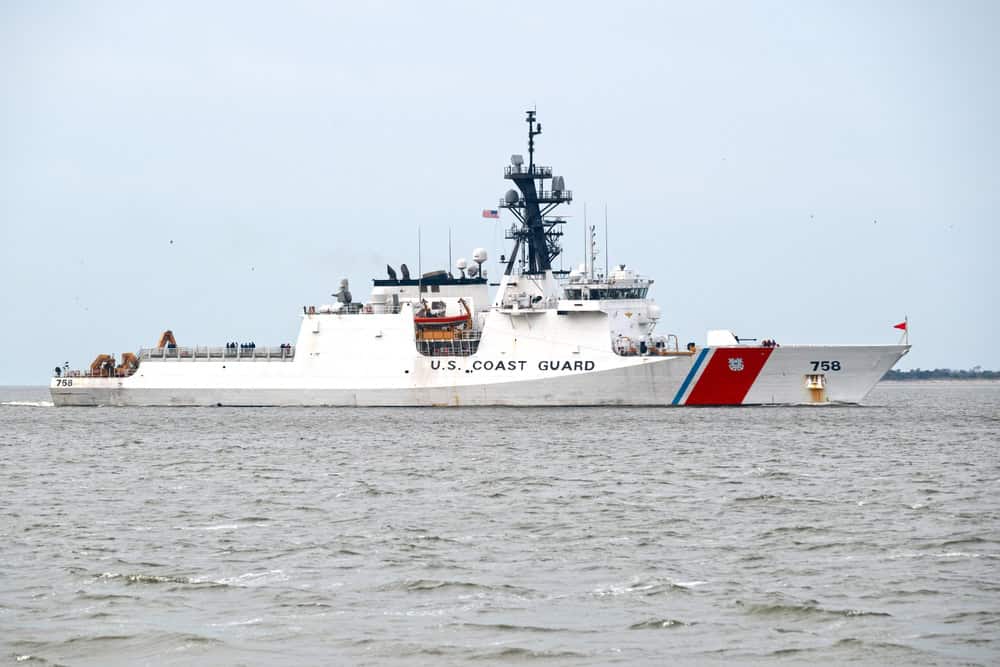CNN reports today that former U.S. Coast Guard Commandant Karl Schultz is under fire for his decision to withhold from Congress the findings of “Operation Fouled Anchor,” an investigation that uncovered decades of mishandled sexual assault cases at the Coast Guard Academy. Schultz, who led the agency from 2018 to 2022, has defended his decision, citing concerns over protecting victims’ privacy.
“I made my decision, and I stand by that,” Schultz told CNN. He emphasized that releasing the findings to Congress could have led to leaks that would harm both survivors and individuals exonerated by the investigation.
What “Operation Fouled Anchor” Revealed
“Operation Fouled Anchor,” concluded in 2020, substantiated dozens of sexual assault and rape allegations spanning the late 1980s to 2006. The investigation found that Academy leadership often prioritized the institution’s reputation over victims’ welfare. Some perpetrators were even allowed to continue their careers within the Coast Guard.
Despite the gravity of the findings, Schultz chose not to release the report to Congress or the public, sparking bipartisan criticism. Lawmakers, survivors, and advocates have questioned the decision, accusing Schultz of attempting to shield the Coast Guard from accountability.
Criticism from Congress and Survivors
Congressman Raja Krishnamoorthi, a member of the House Oversight Committee, called Schultz’s reasoning “absurd.”
“He said he was trying to protect the victims… I think he was trying to protect the perpetrators,” Krishnamoorthi told CNN. He rejected the idea that Congress would have failed to safeguard victims’ identities, emphasizing that lawmakers handle sensitive information regularly.
Survivors have also voiced frustration. Many who shared their stories during the investigation said they felt retraumatized, only to have the findings buried. For survivors, the lack of public acknowledgment of their experiences represents a continuation of the systemic neglect they faced.
A History of Transparency Concerns
Schultz’s predecessor, Admiral Paul Zukunft, told CNN he had intended to brief Congress on the investigation and issue a public apology to the victims. However, he retired before the investigation was completed. Under Schultz’s tenure, internal discussions among Coast Guard leadership weighed the risks of publicizing the findings, with some officials expressing fears of triggering Congressional inquiries and media scrutiny.
These notes, revealed through Congressional investigations, have only intensified criticisms that Schultz and the Coast Guard sought to avoid accountability.
Apologies and Reforms
Since the scandal surfaced in 2022, current Coast Guard leader Admiral Linda Fagan has issued formal apologies to Congress, current and former cadets, and the Coast Guard workforce. She has also implemented new measures aimed at improving how the agency handles sexual assault cases.
However, lawmakers argue that the Coast Guard continues to withhold critical records, suggesting a broader effort to avoid transparency. A memo from the House Oversight Committee revealed that many investigations into sexual assault were “cursory at best,” allowing perpetrators to evade consequences while continuing to serve and even advance in their careers.
Looking Forward
The Fouled Anchor scandal has reignited calls for accountability and systemic reform in how the military addresses sexual assault. Survivors and their advocates hope that increased Congressional scrutiny will bring long-overdue transparency to the issue and ensure no future investigations are similarly buried.
As the Coast Guard grapples with the fallout, the enduring question remains: how can the agency rebuild trust with those who have suffered under its watch?




